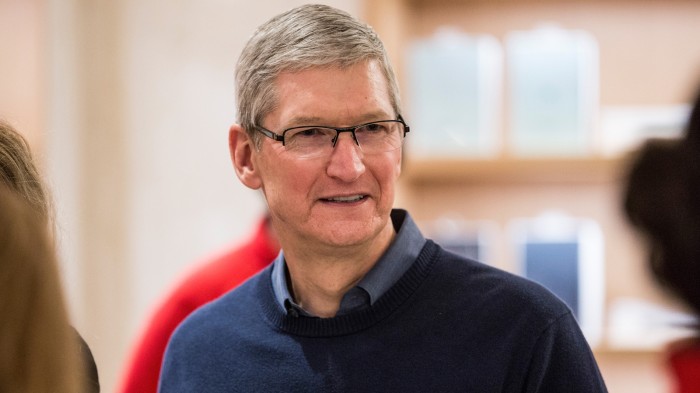Apple’s Billion-Dollar Bet on Didi Chuxing Is About More Than Just Ride-Sharing
Apple doesn’t make a lot of large investments, but on Thursday CEO Tim Cook told Reuters the company was making an exception, putting $1 billion into Chinese ride-hailing app Didi Chuxing.
Didi is in a fierce battle with rival Uber over the domestic Chinese market, where roads are jammed and a rise in car ownership has led to a rise in people interested in part-time work driving for the companies. The two have been battling for market share in China by paying drivers subsidies to pick up rides, with Didi claiming its drivers complete 11 million rides a day, to Uber’s one million.
In the Reuters interview, Cook cited “continued confidence in the long term in China’s economy” as a reason for the investment. China is a massive market for the iPhone maker—last year Chinese consumers spent $59 billion on Apple products—but sales in China have fallen sharply this year, including a 26 percent drop in the most recent quarter. Apple may be calculating that investing in Didi, which is already backed by Chinese technology giants Alibaba and Tencent, will curry favor with Beijing and help open up new markets.

At the same time, Apple’s hiring of a number of top car experts, including many from electric car maker Tesla, has fueled speculation about what the company’s auto ambitions may be, including the possibility that it is building an autonomous electric vehicle. In the long term, ride-hailing services like Uber and Didi seem a good fit for autonomous vehicles.
But Apple’s greatest opportunity in cars will likely be in using its strength in design, UX, and the integration of hardware and software to create the systems that shape drivers’ experience behind the wheel. Already Apple’s Car Play software is integrating iPhones into certain cars, giving drivers directions, the ability to make calls, and listen to music.
As cars become more automated, such interfaces will only become more important. Access to Didi’s data on the driving habits of millions of Chinese drivers could help the design of such systems.
(Read more: Reuters, New York Times, “Apple’s Real Car Play,” “How Might Apple Manufacture a Car?” “Uber’s Bumpy Ride in China”)
Keep Reading
Most Popular
Large language models can do jaw-dropping things. But nobody knows exactly why.
And that's a problem. Figuring it out is one of the biggest scientific puzzles of our time and a crucial step towards controlling more powerful future models.
The problem with plug-in hybrids? Their drivers.
Plug-in hybrids are often sold as a transition to EVs, but new data from Europe shows we’re still underestimating the emissions they produce.
Google DeepMind’s new generative model makes Super Mario–like games from scratch
Genie learns how to control games by watching hours and hours of video. It could help train next-gen robots too.
How scientists traced a mysterious covid case back to six toilets
When wastewater surveillance turns into a hunt for a single infected individual, the ethics get tricky.
Stay connected
Get the latest updates from
MIT Technology Review
Discover special offers, top stories, upcoming events, and more.